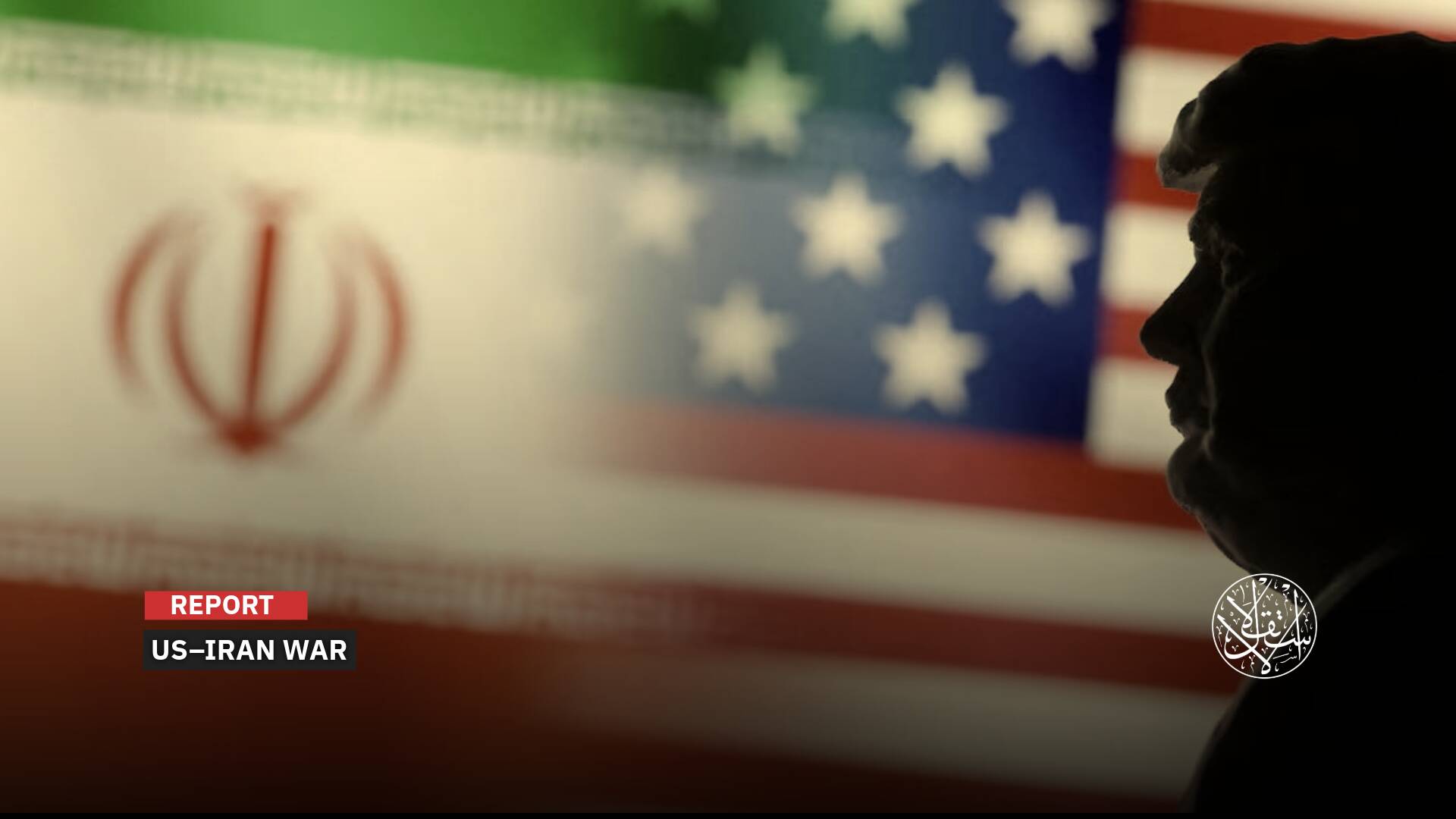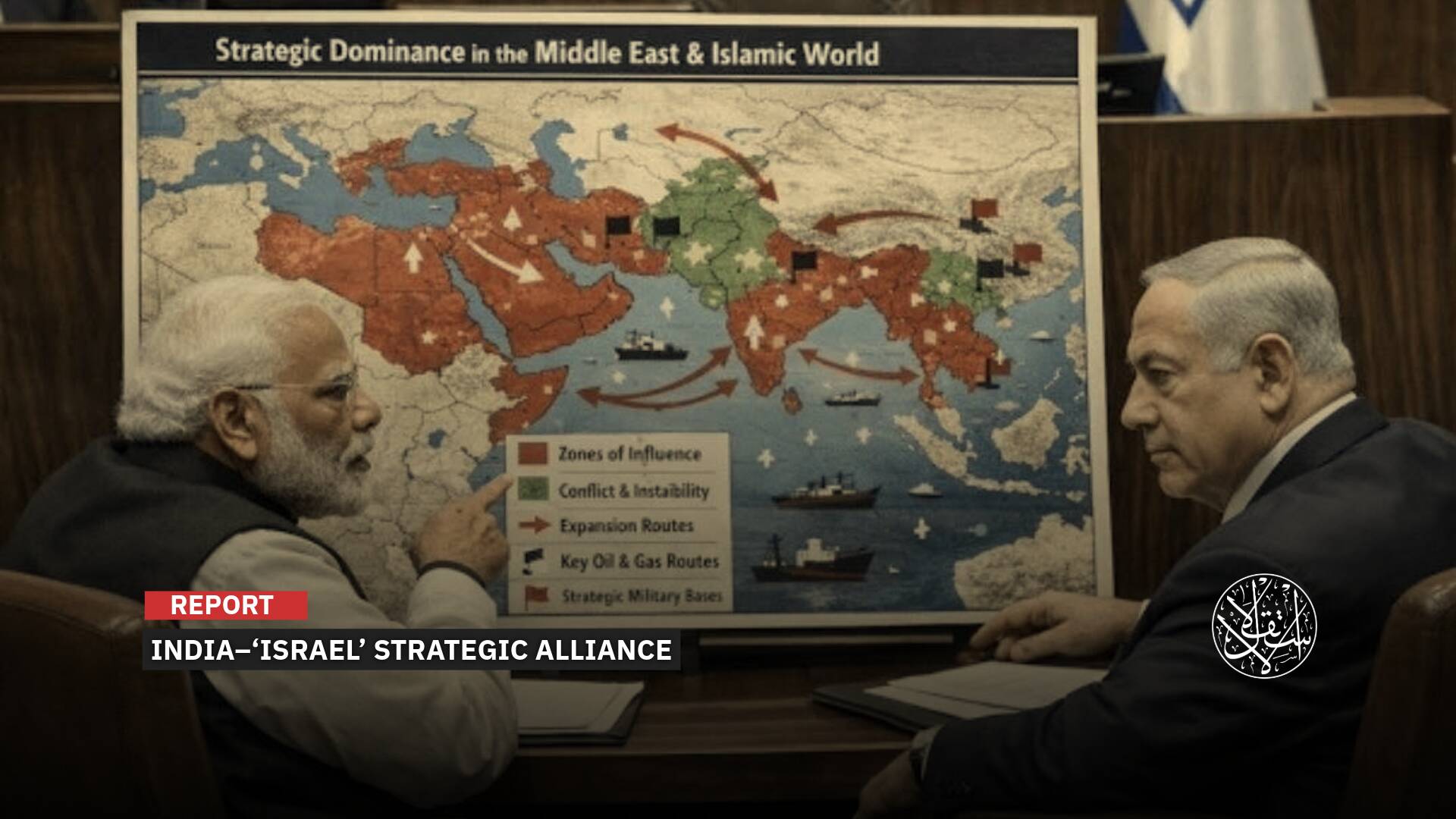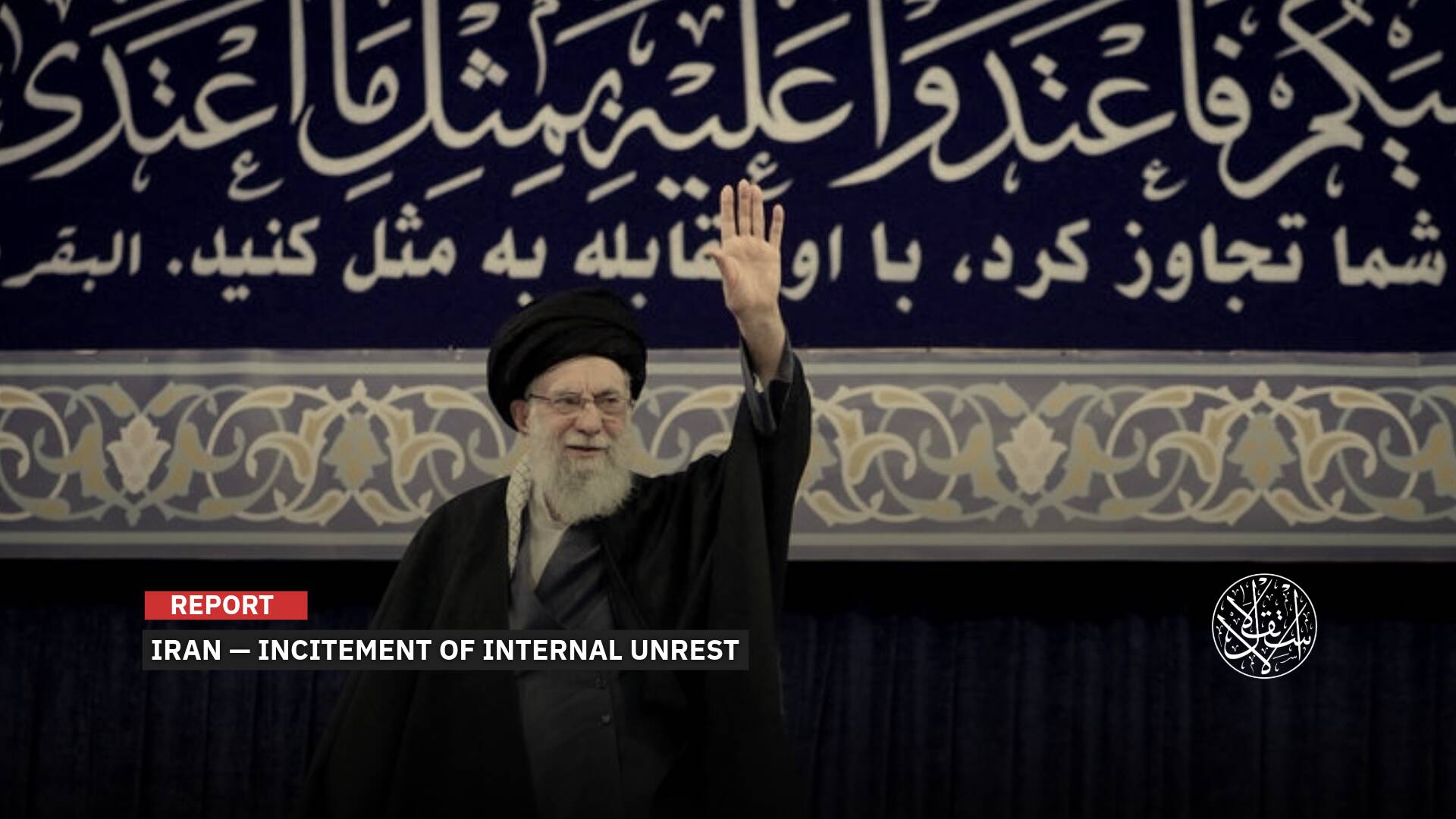What Are Washington’s Messages and Goals After the U.S. Vice President’s Visits to Africa?

Between March 26 and April 2, 2023, U.S. Vice President Kamala Harris conducted a notable African tour, visiting three countries: Ghana, Tanzania, and Zambia. Observers saw this as a direct engagement in the continent’s power struggle with China and Russia.
The visit comes after the United States approved a new strategy toward Africa in 2022 aimed at strengthening its priorities there and redefining the continent’s status according to national security interests for the next five years. The U.S. also allocated $55 billion to the continent over the next three years.
U.S. officials confirmed to Euronews that this trip is part of Washington’s strategy aimed at limiting the growing influence of Beijing and Moscow on the resource-rich continent and sending a more positive message from the United States.
Remarkable Tour
In her first stop, Harris said in statements upon her arrival in Ghana that her visit provides an opportunity to deepen the relationship between the United States and African partners. She said: “What an honor it is to be here in Ghana and on the continent of Africa…I’m very excited about the future of Africa.”
Harris said she wanted to promote economic growth and food security and welcomed the chance to “witness firsthand the extraordinary innovation and creativity that is occurring on this continent.”
In Ghana, Harris met with President Nana Akufo-Addo, participated in an official banquet, delivered a speech to youth on innovation and women’s empowerment, and visited the “slave castle,” which was the last stop for thousands of Africans who were sold during the slave trade.
In her second stop, the U.S. Vice President announced plans to boost trade with and invest in Tanzania. “We are looking forward to this trip as a further statement of the long and enduring, very important relationship and friendship between the people of the United States and those who live on this continent,” Harris said.
She referred to several initiatives at a press conference with President Samia Suluhu Hassan. These include a new memorandum of understanding between the Export–Import Bank of the United States (EXIM) and the Tanzanian government. This memorandum will facilitate up to $500 million in funding to help U.S. companies export goods and services to Tanzania in sectors including infrastructure, transportation, digital technology, climate security, energy, and power generation.
Harris also mentioned the new partnership between the two countries in fifth-generation technology and cybersecurity, as well as a U.S.-supported plan by Lifezone Metals to open a new processing plant in Tanzania for metals used in electric vehicle batteries. She said this project is an important and innovative model that uses low-emission and innovative standards. More importantly, the raw materials will soon be processed in Tanzania by Tanzanians, she added, noting that the factory will transport nickel from battery class to the United States and the global market starting in 2026.
In Zambia, Harris reiterated her call for a quick resolution to restructure Zambia’s massive debt, which is estimated at $17.3 billion.
Africanews reported on March 31, 2023, that the United States was pressuring creditors, including China, to ease the country’s external debt, noting that Zambia stumbled in its performance in 2020 amid the COVID-19 pandemic.
Harris said at a press conference following her meeting with Zambian President Hakainde Hichilema in Lusaka that the U.S. will continue to call for a quick completion of addressing and restructuring Zambia’s debt.
According to her, the international community must help countries like Zambia stand on their feet again, she said, as a result, she will repeat the call she has made several times for all bilateral creditors to undertake significant debt reduction.
The United States accused China, the largest creditor to many African countries, of dragging its feet since Lusaka requested assistance under the G20 Debt Service Suspension Initiative for the poorest countries.
Democracy and good governance around the world is a priority for the United States.
— Vice President Kamala Harris (@VP) April 1, 2023
I thanked President Hichilema for co-hosting the Summit for Democracy and embarking on an ambitious democratic reform agenda in Zambia. pic.twitter.com/sf360Hadeo
Background and Objectives
Egyptian political science professor Mubarak Ahmed confirmed during the visit that Vice President Kamala Harris’s program focused on several core issues: economic development, climate change, food security, women and youth, debt relief and democracy, and creative industries. Ahmed explained in an article published on the “Cairo News” website on March 30, 2023, that the visit aimed to promote the American vision for the future of Africa.
He added that this vision, which President Joe Biden expressed, aspires to work with African governments, civil society, the private sector, diaspora communities, and expatriates across the United States. According to the same speaker, the second goal is to balance Chinese influence, which America sees as a threat.
China is Africa’s largest trading partner, with trade between the two reaching around $282 billion in 2022, including Chinese exports to Africa worth about $164.5 billion and African exports to China worth about $117.5 billion.
Ahmed said that the third goal is embodied in confronting Russian expansion, as Russian interest during President Vladimir Putin’s era increased in strategic regions of the world, in his quest to regain Russia’s position on the international political stage. Ahmed said that the fourth goal represents enhancing economic gains, as Africa possesses economic elements that have made the United States describe it as the future of the world.
The writer concluded that Kamala’s visit reflects America’s desire to narrow the trust gap with African countries and regain its position within the continent, which has become a broader field for international competition between major powers vying for the summit of the international system seeking to enhance their roles and positions.
On the other hand, Landry Signe, a professor of global economics and development at Arizona State University in the United States, confirmed that Harris’s tour comes at a critical juncture in moving forward with the commitments issued by the United States–Africa Leaders Summit. Signe talked about this in an article published on the Brookings website.
He expressed his hope that the United States, through Harris’s visit, would demonstrate that its partnership with Africa aims to be mutually beneficial and long-term, rather than just a part of a broader geopolitical policy.
The professor emphasized that the best way for the United States to enhance mutually beneficial relationships with Africa is by accelerating the implementation of commitments made at the U.S.–Africa Leaders Summit.
This includes providing $55 billion in tangible financial resources, implementing private sector commitments, empowering the U.S. Advisory Council on African Immigrant Participation, and supporting investments from the Digital Transformation Initiative with Africa.
Signe believed that the three selected countries for the visit offered unique opportunities to enhance these commitments in a way that looks beyond competition and toward cooperation to promote shared goals.
This can be done by focusing on each country’s strengths, whether in trade, peacekeeping, digital economy, gender integration, or others.

International Conflict
With the first announcement of Harris’s African tour, several researchers have confirmed that it primarily comes amid the growing conflict and competition between the U.S. and China in several international arenas.
In this regard, political researcher Nourhan Abou el-Fotouh said that Harris’s visit to Africa comes amidst successive transformations witnessed by the world and reaffirms once again the escalation of competition on the African continent between major actors and states.
Abou el-Fotouh explained in a statement to the government-owned Russia Today channel on March 14 that this tour comes after many witnessed by the region’s major players and the biggest competitors of the United States.
Chinese Foreign Minister Wang Yi made an official visit to Africa between January 9 and 16, 2023, starting with Ethiopia and passing through Gabon, Angola, Benin, and ending with Egypt, according to her.
The region also witnessed a visit by Russian Foreign Minister Sergey Lavrov to a number of African countries, including Mali, Mauritania, Sudan, and most recently South Africa, Eswatini, Angola, and Eritrea in January 2023, coinciding with a tour by U.S. Treasury Secretary Janet Yellen, in addition to the visit of U.S. Secretary of State Antony Blinken to Egypt, which came in conjunction with the visit of Egyptian Foreign Minister Sameh Shoukry to Russia, indicating the successive movements of the three countries’ officials, the United States, China, and Russia.
She believed that these visits confirm the state of conflict in the region between three powers that seek to benefit from their presence in this region as a battlefield among them for the top of the international system.
Each of them seeks to expand its influence globally by settling the battle of its presence in many strategically important regions, according to the Egyptian researcher.
Abou el-Fotouh confirmed that it could be said that the United States will work to take bigger steps and movements in the African continent in the coming period, in an attempt to ensure a permanent strategic partner, especially in light of the regional and global role played by China recently.
Forced Return
The United States’ renewed interest in the African continent has been noted and followed by international newspapers and media outlets. The Spanish newspaper La Razon confirmed that America’s return to African countries was “forced” to counter the growing influence of China and Russia on the continent. This was evidenced by Secretary Blinken’s tour, which followed shortly after his Russian counterpart Lavrov’s visit in July 2022.
According to the journalist, in a translation for Al-Estiklal, this visit is the latest move by the United States to strengthen ties with African countries with strategic weight in the face of Russia and China’s growing influence on the continent.
It added that the scenario of competition between the United States and Russia to impose their influence in Africa is a recall of the Cold War era.

As a French magazine reported, the United States is making intense efforts to diversify its supply chains for strategic and precious metals in order to achieve an energy revolution in the 21st century. Jeune Afrique magazine confirmed that the West is seeking to gradually reduce its reliance on China and Russia for raw materials and energy supplies.
Energy and precious mineral-producing countries in the African continent are contemplating a shift toward stricter environmental, social, and governance standards in order to benefit from their resources and export them to Western countries.
According to the French newspaper TV5 Monde, the 2022 U.S.–Africa summit presents an opportunity to announce new investments between the United States and African countries. The summit, according to the newspaper, focused specifically on the problem of growing food insecurity since the outbreak of the war in Ukraine, climate change issues, as well as the promotion of democracy and governance.
Above all, the newspaper believes that the summit is a suitable opportunity for the United States to demonstrate its continued interest in the African continent. Researchers emphasize Africa’s need for fair treatment, whether from China, the United States, Russia, or others.
In this regard, Professor Godfred Alufar Bokpin, an economics expert and professor at the University of Ghana, said in an interview with the BBC on March 27, 2023, that there is some suspicion and doubt in Africa regarding the growing interest in the continent. He said that there is a belief that Africans are witnessing a new scramble for Africa, referring to the late 19th-century division of the continent by European countries, which led to decades of colonization and exploitation. However, he confirmed the need to emphasize mutual respect between Africa and major countries seeking to strengthen their links with the continent.
Sources
- US Vice President Kamala Harris arrives in Ghana at the start of an African tour [Arabic]
- Kamala Harris announces Tanzania trade boost during Africa tour
- Zambia welcomes US Kamala Harris in Lusaka, discuss massive debt restructuring
- What are the implications of the visit of the US Vice President to Africa at this time? [Arabic]
- Do the United States succeed in establishing close relations with Africa and distancing it from China? [Arabic]
- VP Kamala Harris’ visit to Africa: Delivering on US commitments or countering China and Russia?












